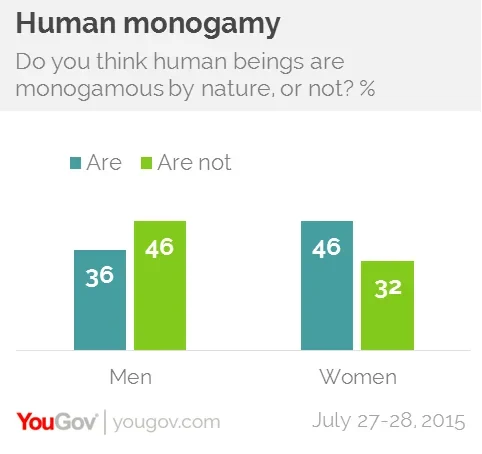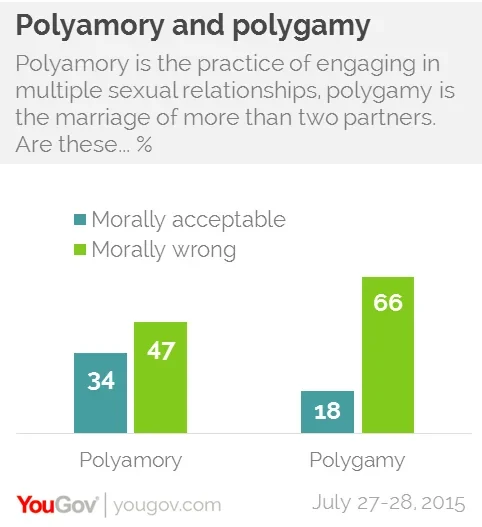Men and women differ on views of monogamy – but most say polygamous marriage is morally wrong
Ever since same-sex marriage was made legal in the UK, and a ban on federal recognition was lifted in the United States, people have begun to wonder if polygamous marriage could be next. Many arguments for the liberalisation of marriage laws are about freeing the right to marry from historical prejudices, leading some to question why marriage should be limited to just two people.

New YouGov research finds that British people oppose this sort of shift in the legal definition of marriage, and see one as unlikely, but many are flexible with their understanding of how many people can engage in sexual relationships at a time.
British men in particular doubt that humans are monogamous by nature, having only one sexual partner at a time, tending to say we’re not by 46-36%. Women on the other hand tend to say we are monogamous by nature, by 46-32%. Overall, the public are divided – 41% say humans are naturally monogamous, 39% say we are not.

But monogamy is still considered very much achievable, as the vast majority of the public (72%) say everyone can manage it if they put in enough effort. And there is a large group (47%) who even say that polyamory (having multiple consensual sexual relationships at once) is morally wrong. In the United States a majority (56%) share this view.
The former Archbishop of Canterbury Lord Carey worried prior to the passing of same sex marriage that it would set a “dangerous precedent” which could lead to sibling marriage or polygamy. 58% of British people doubt polygamy will be legal in 30 years, and 66% say polygamy is morally wrong.
Polygamy is legal in around one in four countries worldwide, however in the vast majority of cases the privilege is on the male side, excluding the practice of one wife having two or more husbands – and in India and Sri Lanka only Muslim citizens are permitted. Group marriage, involving multiple participants of each gender, is also extremely uncommon.








